Holds our Monthly Feature and Monthly Feature data
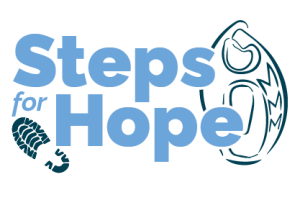
The MMM Steps for Hope 2023, our Lenten Challenge, has started. Last year people from all five continents participated and this year we hope the same happens.
We have set out some simple guidelines which we hope will explain all and are encouraging everyone, wherever they are throughout the world, to take part. It is good for your health! So, sign up to join us and walk or run 40 Km or 80 Km over the 40 days of Lent, fund-raising for MMM at the same time if you are able. (more…)
By Sr. Mary O’Malley, MMM
Let me tell you the story of the Karamojong girls from Uganda. These unfortunate young girls and children, some as young as 9 years old, were initially found by one of our Trainers sleeping ‘rough’ with no shelter and only plastic sheets in the Majengo Eastleigh area, Nairobi. They are recruited in large numbers by the Somali community and used mainly in domestic service and sexual exploitation, but they are also used in Al-Shabbab (terrorist) activities. We were reliably informed of Karamojong girls who obtained Kenyan passports to enter Somalia. They may get killed, but who cares?
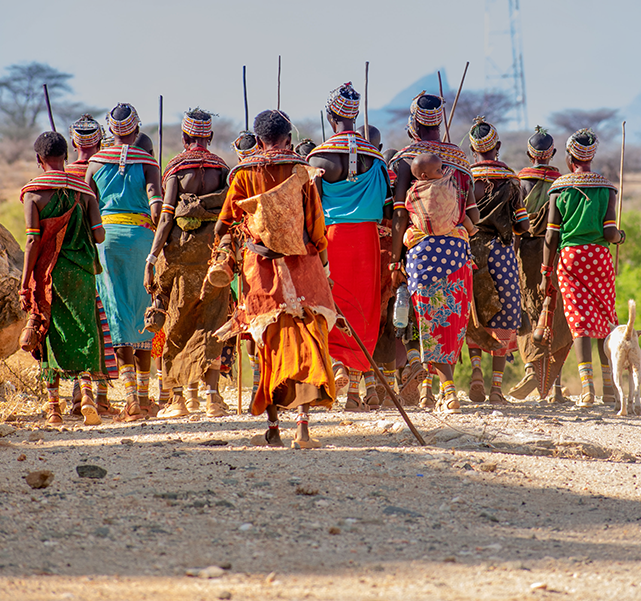 We undertook the major challenge of rescuing these vulnerable young girls. Initially twenty of them were offered shelter in a rented house with food, personal and sanitary items supplied, plus bedding, clothing, etc. We hired security guards for night and daytime duty, also two house mothers to oversee their varied needs and we left them free to move out during the day and take any small casual jobs they might find. It worked well. They went out happy, and at night availed of the security of the shelter.
We undertook the major challenge of rescuing these vulnerable young girls. Initially twenty of them were offered shelter in a rented house with food, personal and sanitary items supplied, plus bedding, clothing, etc. We hired security guards for night and daytime duty, also two house mothers to oversee their varied needs and we left them free to move out during the day and take any small casual jobs they might find. It worked well. They went out happy, and at night availed of the security of the shelter.
The numbers increased dramatically every day until we had 98 girls in six houses. We also realised that at least ten of them would deliver babies in the next two months. It was a huge challenge. Many were sick, ranging from chest infections (two had tuberculosis), rashes, sexually transmitted infections, etc. In the first two weeks, we had taken sixty-five of them to various hospitals and clinics. That whole situation contributed to major expenses. Each morning we held daily briefing meetings. There was a strong bond and commitment in the team, and we consulted each other as and when necessary. Eventually, we were able to repatriate some of them, some to formal schooling, others received micro-finance assistance while those with babies opted to go home, and they too were given the rudiments of running a small business.
MMM Sisters, Fuka, Nigeria
Everything in life has a season and we are called to embrace all with love, wisdom and integrity. Niger State, since the beginning of the year 2021, has suffered grievous attacks from bandits. However, God’s mercy and goodness has remained unsearchable.
Medical Missionaries of Mary Fuka community is in the Munya Local Government area in Niger state. The rainy season is here and despite the insecurity challenges, the farmers have been, and still are, working tirelessly in harvesting their crops.
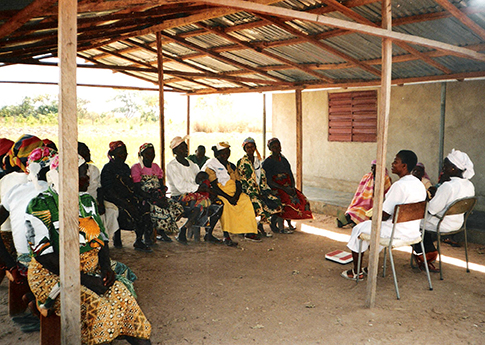 Since the onset of this insecurity challenge in Fuka, our community and Primary Health Care has been on and off. April 2021 was our first experience of a banditry attack in Fuka and the environs. The community was thrown into turmoil and as a result, we closed for three months. Almost a year later, there came another attack which took place on 11th March, 2022. Thank God we had already come out of Fuka to the place where we had arranged accommodation for such occurrences.During this incident, the community was deserted; with families displaced and some people kidnapped. Some flew to neighbouring villages and others found refuge for days in nearby bush. Besides this, properties were destroyed and food crops and animals, especially cows, were taken away. People were killed and other lives were lost to hunger. Health conditions deteriorated and there was poor access to health care. Fear was very palpable, movement was restrained, so people were on the alert. There was no freedom of worship, and fear engulfed the area to the extent that the Easter Vigil was not celebrated.
Since the onset of this insecurity challenge in Fuka, our community and Primary Health Care has been on and off. April 2021 was our first experience of a banditry attack in Fuka and the environs. The community was thrown into turmoil and as a result, we closed for three months. Almost a year later, there came another attack which took place on 11th March, 2022. Thank God we had already come out of Fuka to the place where we had arranged accommodation for such occurrences.During this incident, the community was deserted; with families displaced and some people kidnapped. Some flew to neighbouring villages and others found refuge for days in nearby bush. Besides this, properties were destroyed and food crops and animals, especially cows, were taken away. People were killed and other lives were lost to hunger. Health conditions deteriorated and there was poor access to health care. Fear was very palpable, movement was restrained, so people were on the alert. There was no freedom of worship, and fear engulfed the area to the extent that the Easter Vigil was not celebrated.
Amidst all these challenges, God has been so faithful in enriching us with new insight, more courage and the zeal to continue his healing mission. To be a victim of a banditry attack is an experience that one should never wish for. It leaves one with sad and fearful memories but somehow one grows more in showing compassion and being in solidarity with others. It was a genuine moment where our faith and trust in God was challenged and we felt the protecting hand of God. This was our experience! Nevertheless, as a community we draw our strength from prayers and support from one another. We live each day as it comes, sharing our stories, strengths, and fears and engaging in community activities, not forgetting to celebrate. The renewal of vows of Sr. Linda happened at the heat of this time (April 2022) and we did not hesitate to celebrate!
In all these, we kept in touch with our Leaders and updated them of the happenings. They were very supportive and indeed the whole Congregation was in solidarity with us, praying and checking on us. Engaging with the Leaders, we expressed our desire to remain with the people rather than closing down completely. From the experience of the first attack, many patients suffered lack of health care services. In view of this, on 4th April (our MMM Foundation day), we initiated a mobile outreach in consultation with the Area Leadership Team. This was to reach out to our patients on special treatment such as those with sickle cell anaemia (SS), diabetes and tuberculosis (TB). Some of our staff expressed their willingness to participate in this venture. Presently, our outreach, which is in Kaffin Koro, has expanded with the inclusion of general health care with laboratory services, immunisation of children and a school health programme. The programme runs through Monday to Thursday. It has not been easy making such a journey daily on a rough road. Nevertheless, the fulfilment gained in reaching out to them is enough grace to cope with the stress. The nature of the work is demanding, yet the prayer and support of those around us gives us courage.
We are also grateful to our Bishop, His Lordship Dr. Martin Uzoukwu and his Auxiliary Luka Sylvester Gopep who have been very supportive. Some religious communities around us also have been good to us, paying us visits, not forgetting our parishioners who can’t wait for us to go back to Fuka. In fact, our parish, Fuka, already sent delegates urging us to return, assuring us of an improved security situation at the moment. Some of our sisters have been so brave to pay us visits; these were always reviving and encouraging moments for us. The patients have been so appreciative and pouring God’s blessings on us for making the effort to reach out amidst the challenges.
They remain hopeful that we will soon resume in Fuka. We are blessed at this time to have a new diagnostic machine installed in our clinic, to aid in the diagnosis of tuberculosis. The training began in September 2022. Some of the staff that were available and some of the villagers participated and witnessed the installation. Indeed, it was a huge success! To them, it was a great sign that MMM PHC Fuka does not just belong to the Medical Missionaries of Mary, but they have a great share in it as beneficiaries. It also increased their hope that activities will resume soon.
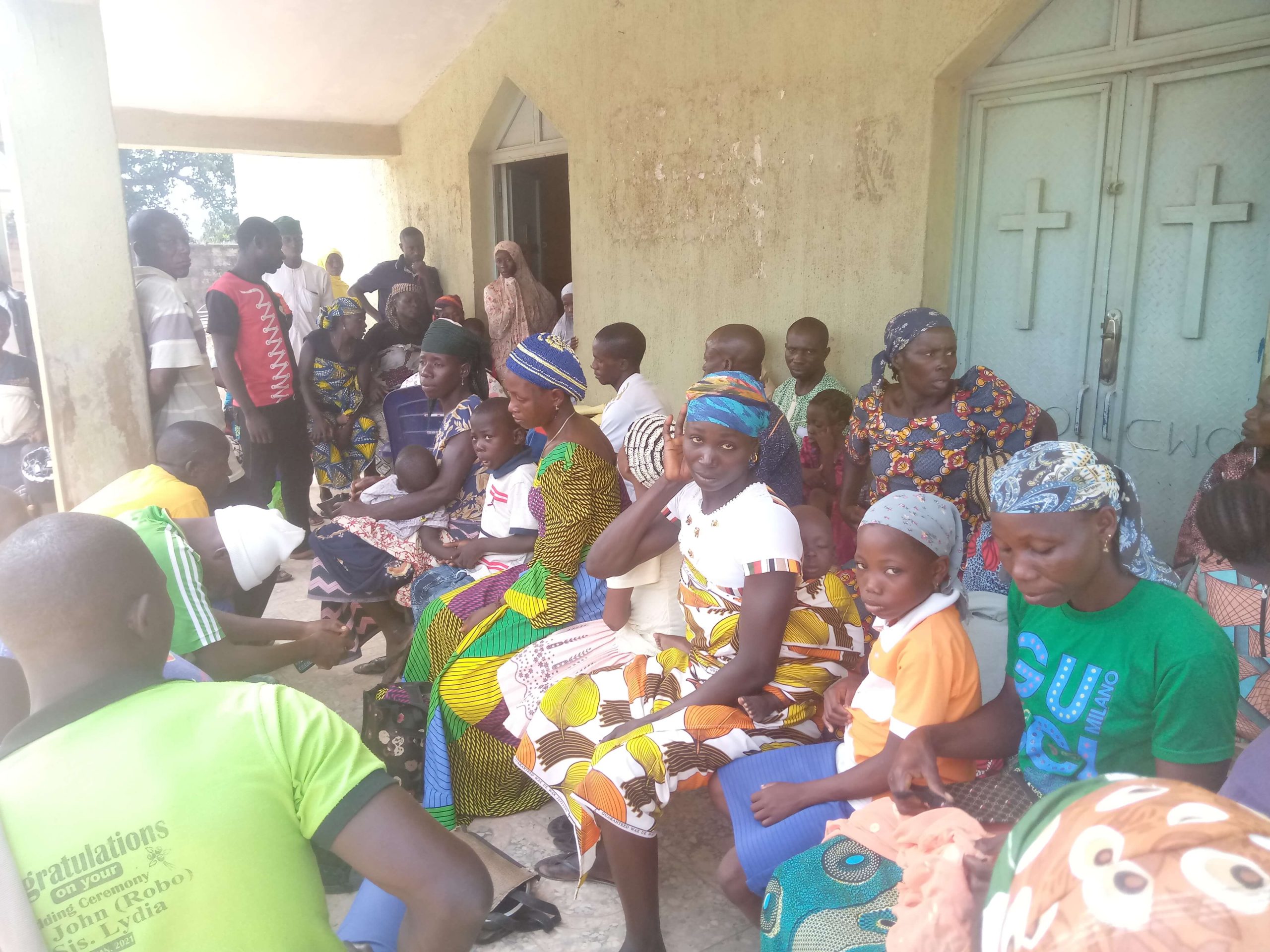
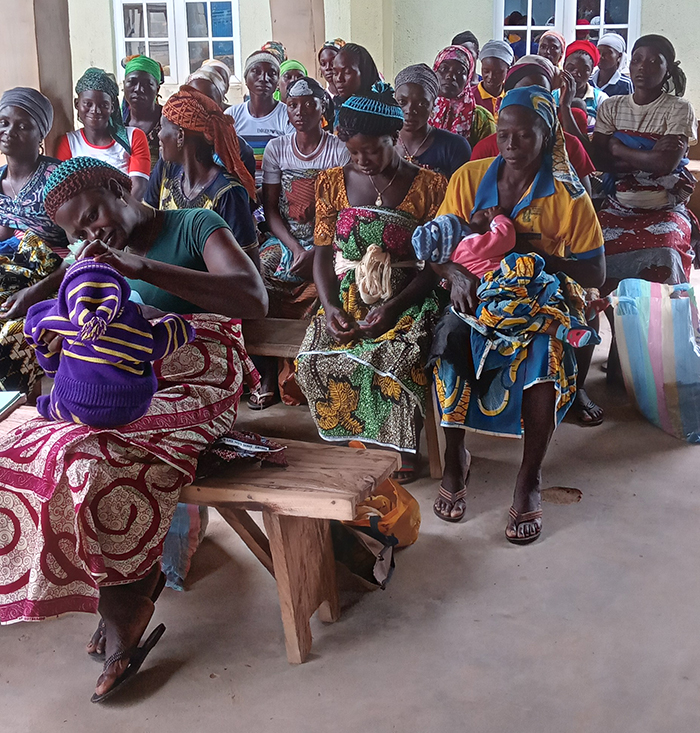
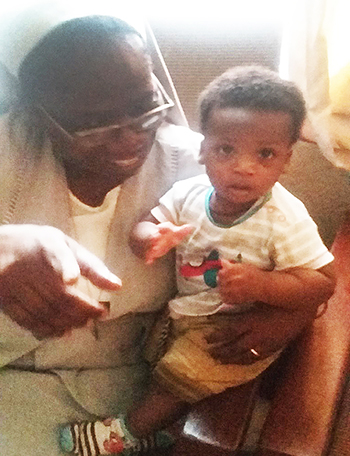 When we think of a treasure, we think of something we cherish so dearly, something valuable that is precious to us and we want to acquire it. Merriam Webster uses the following related words for treasure: blessing, Godsend, goody, windfall and valuable.
When we think of a treasure, we think of something we cherish so dearly, something valuable that is precious to us and we want to acquire it. Merriam Webster uses the following related words for treasure: blessing, Godsend, goody, windfall and valuable.
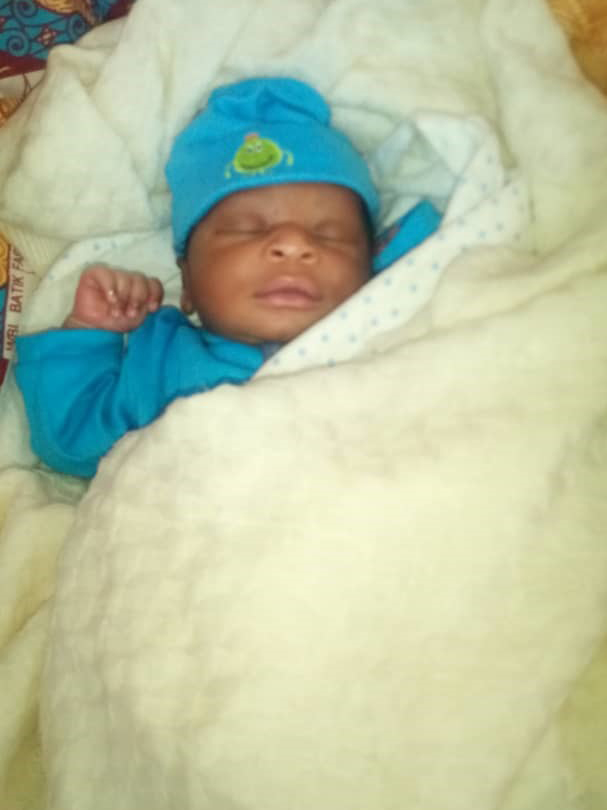 In 2017, I was asked by the West Africa Area Leader to work with Sr. Leonie as she rounded up, in preparation for her retirement and return to Ireland. This was initially meant to be a short assignment after which I would hand over to her successor and move to Angola where I had originally been assigned. Little did I know that God had another plan for PLAN and that I was that successor.
In 2017, I was asked by the West Africa Area Leader to work with Sr. Leonie as she rounded up, in preparation for her retirement and return to Ireland. This was initially meant to be a short assignment after which I would hand over to her successor and move to Angola where I had originally been assigned. Little did I know that God had another plan for PLAN and that I was that successor.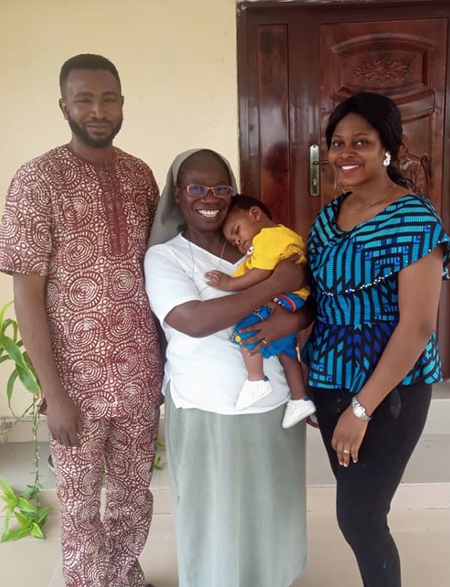
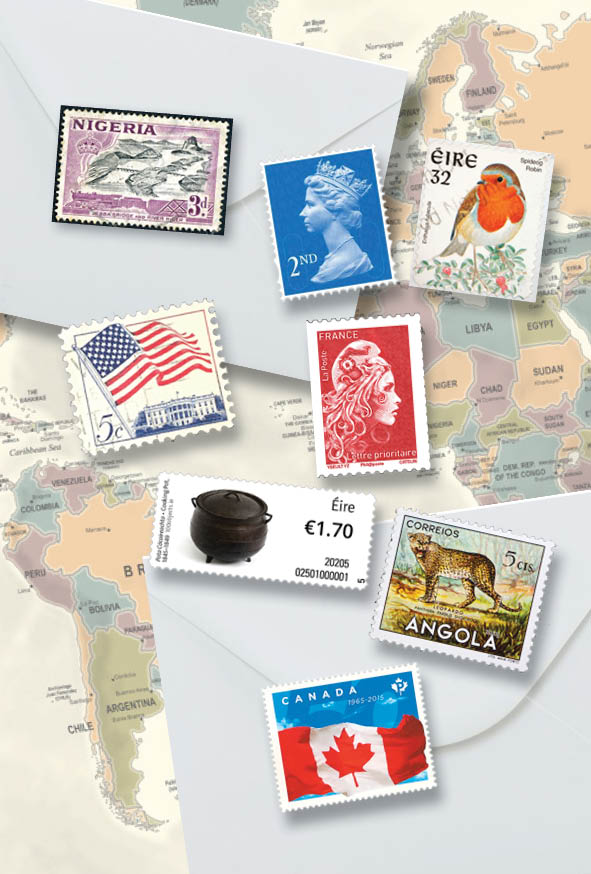 Is it still worth collecting stamps for the missions in a digital world? Yes, definitely.
Is it still worth collecting stamps for the missions in a digital world? Yes, definitely.
Stamp collecting is among the most popular pastimes in the world. It has been called “the hobby of kings”. As we are curious by nature, it is easy to understand why many collectors take an interest in stamps of other countries, or to be more precise, the stamps of certain other countries. The cheapest and most affordable way for these collectors to acquire stamps, from selected countries, is to buy stamps from that particular country.
On average, a parcel of stamps contains about 1200 stamps, with many duplicates. These parcels are not sorted or picked by the dealers, as labour costs are prohibitive. This fact benefits the collector as he can do his/her own sorting, falling upon stamps that can be added to his collection, an interesting postmark and on the rare occasion, an exciting error! Duplicates can be swopped with other collectors or with stamp clubs so there is very little wastage. To collectors, most of the excitement is in the search and the sense of discovery, stumbling upon a stamp not encountered before.
It is obvious that the Dealer must have large quantities from any one country to weigh out small parcels for sale. The question is where can he get such quantities in the first place? The answer is mainly from Religious Orders and certain Charitable Organisations who receive small to medium quantities of stamps from many well-wishers. Any single offering may be a “widow’s mite”, but added together, these offerings gain considerable weight. Dealers buy from these sources and apart from the weight the factor that determines the price is the quality of the stamps.
If you have been collecting stamps for MMM, please continue the good work; if you have not, would you please consider doing so now. The following simple, but golden rules go to help maximise your contribution.
GOLDEN RULES
1. Never try to peel a stamp from an envelope. You will damage the stamp, making it useless.
2. Clip the stamp and surrounding piece of paper from envelopes, etc. Leave about ¼ inch of envelope paper clear around the stamp. This is to ensure the stamp is not damaged.
3. If the envelope has a neat circular postmark, try to include all of the postmark in the clipped piece. Many collectors are as interested in postmarks as they are in actual stamps.
Please send your stamps to:
Sr. Breeda Ryan, MMM
Stamp Department
Beechgrove
Drogheda, Co. Louth A92 XKX0
Four new MMMs made their First Profession of Vows this year after completing their formation programme in the International Novitiate in Ibadan, Nigeria. Each one comes from a different background and life experience, but all were attracted to serving the poor and needy, using their gifts and talents. Let us introduce them to you
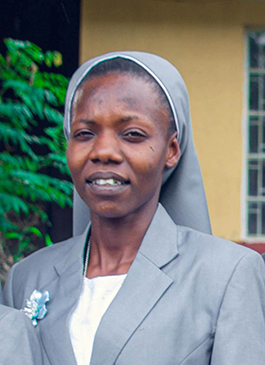 Sr. Pauline Amulen (29) comes from Uganda, one of a family of eight children. Her father was a catechist and started a small Christian Community under a mango tree near his house as there was no church! It grew and eventually a church was built. This is what stimulated in Pauline a firmness in faith and planted the seed of a missionary vocation. Times were hard when she was young as Uganda was going through a period of civil unrest. When she was small, she lost her home, but the family managed to stay together. Her mother was involved in a serious car accident when Pauline was only seven years old. “It forced me to be a mother at a tender age”, she recalls, as she set about caring for her siblings. Because she did well at school, she was able to benefit from scholarships which brought her right up to university level and she graduated in 2017 with a degree in Business computing. Her early life experiences taught her to reach out to the suffering. Now she is assigned to Malawi for her next step in her missionary journey.
Sr. Pauline Amulen (29) comes from Uganda, one of a family of eight children. Her father was a catechist and started a small Christian Community under a mango tree near his house as there was no church! It grew and eventually a church was built. This is what stimulated in Pauline a firmness in faith and planted the seed of a missionary vocation. Times were hard when she was young as Uganda was going through a period of civil unrest. When she was small, she lost her home, but the family managed to stay together. Her mother was involved in a serious car accident when Pauline was only seven years old. “It forced me to be a mother at a tender age”, she recalls, as she set about caring for her siblings. Because she did well at school, she was able to benefit from scholarships which brought her right up to university level and she graduated in 2017 with a degree in Business computing. Her early life experiences taught her to reach out to the suffering. Now she is assigned to Malawi for her next step in her missionary journey.
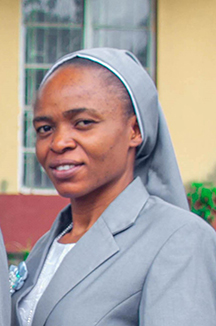 Sr. Mary Ogana (32) is from Cross River State in Nigeria. She is the second youngest in a family of five children. Sadly, her mother died when she was only 13 years of age. Her youngest sibling, Precious, was still a baby and Mary was left looking after her as her older siblings were off schooling. Thankfully her father is still alive. Her parents, she says, “were generous, hard-working and peaceful”. After her initial schooling, Mary went to a College of Health Technology and trained as a Community Health Extension Worker (CHEW). Having worked in the health field before she joined MMM, this helped her decide which religious Congregation to join. She is starting her missionary life in Eleta, Ibadan, Nigeria.
Sr. Mary Ogana (32) is from Cross River State in Nigeria. She is the second youngest in a family of five children. Sadly, her mother died when she was only 13 years of age. Her youngest sibling, Precious, was still a baby and Mary was left looking after her as her older siblings were off schooling. Thankfully her father is still alive. Her parents, she says, “were generous, hard-working and peaceful”. After her initial schooling, Mary went to a College of Health Technology and trained as a Community Health Extension Worker (CHEW). Having worked in the health field before she joined MMM, this helped her decide which religious Congregation to join. She is starting her missionary life in Eleta, Ibadan, Nigeria.
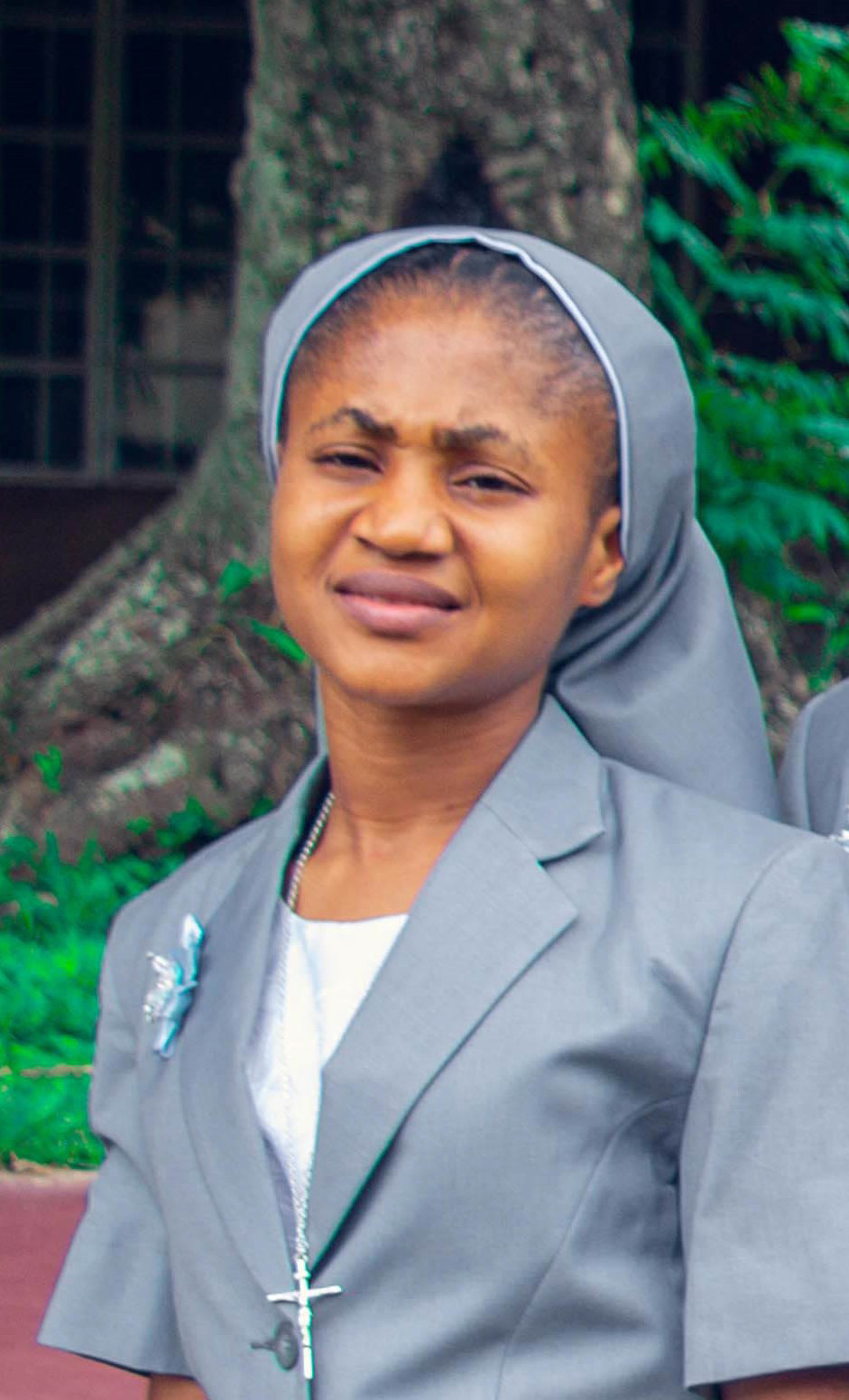 Sr. Anastasia Onukafor (26) comes from Abia State, Nigeria. The fifth child of seven, she knew from an early age she wanted to give her life to God as a religious. The family used to joke about it! After finishing school and a course in Computer training, she began working as a nurse’s aid in MMM Hospital in Abakaliki. She tells the story that really impelled her to join our Congregation:
Sr. Anastasia Onukafor (26) comes from Abia State, Nigeria. The fifth child of seven, she knew from an early age she wanted to give her life to God as a religious. The family used to joke about it! After finishing school and a course in Computer training, she began working as a nurse’s aid in MMM Hospital in Abakaliki. She tells the story that really impelled her to join our Congregation:
“There was a man lying helplessly outside the hospital gate. He bathed himself with his faeces, looking so weak and abandoned. People were by-passing him but some Sisters of the Medical Missionaries of Mary who came for vocation promotion in Abakaliki picked him up and brought him in. They took care of him, treated his sore, fed and handed him over to the leprosy unit until the relatives came for him. I was touched by this act of compassion, and I felt that I have seen what I was looking for in a congregation. I felt then that it was time to join.”
 Sr. Julia Iwuala (38) is from Imo State, Nigeria. Her family were business people and she is one of eight children. After her schooling, she worked with a company as a cashier for a short period and then decided to enter religious life in another Congregation. Around the same time, she lost her mother and found the loss difficult to cope with. So, to give herself time to go through the grieving process, she left the other Congregation and went back to her studies and work. She qualified in Business Administration and worked as a school secretary before joining MMM in 2018.
Sr. Julia Iwuala (38) is from Imo State, Nigeria. Her family were business people and she is one of eight children. After her schooling, she worked with a company as a cashier for a short period and then decided to enter religious life in another Congregation. Around the same time, she lost her mother and found the loss difficult to cope with. So, to give herself time to go through the grieving process, she left the other Congregation and went back to her studies and work. She qualified in Business Administration and worked as a school secretary before joining MMM in 2018.
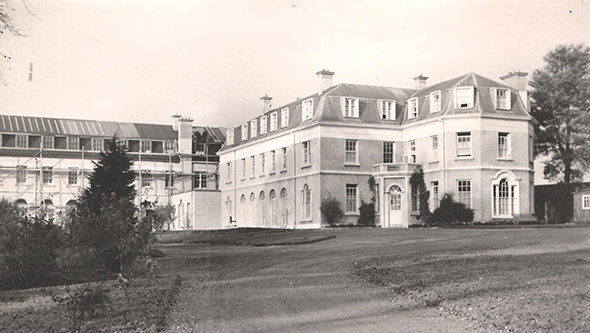 This year we celebrated the Platinum Jubilee of Queen Elizabeth in England, so it is a good time to look back at 1952 in the MMM world and see what was happening then.
This year we celebrated the Platinum Jubilee of Queen Elizabeth in England, so it is a good time to look back at 1952 in the MMM world and see what was happening then.
Fire in Drogheda:
On February 13th, 1952, the Novitiate in Beechgrove, opened in 1941, was destroyed by fire. Overnight one hundred and fifty Sisters and novices were left homeless. The people of Drogheda, local convents and even some hotels generously gave accommodation to the homeless Sisters. The new extension to the convent, due to be opened shortly, was only saved from the fire by the quick action of the Drogheda Fire Brigade and the knowledge of local builders who sealed off access. The hospital continued to run normally even though the Matron, Matron Phelan, could see her own apartments going up in flames. There was massive damage structurally but growth in resilience, flexibility and service among the Sisters after this event.
First sod turned:
Despite the disaster of the fire, 1952 was still the year that Mother Mary went ahead with plans for the building of a Training Hospital on a site adjacent to the convent. A ceremony was held to bless the site and turn the first sod in preparation for building.
Earthquakes in East Africa:
During this year two earthquakes occurred in parts of East Africa where MMM were pioneering new missions. In January the Kigoma Region of Tanzania (then, Tanganyika) suffered a 6.2 magnitude shock. There is no record of fatalities. The June 1952 quake was felt in the Western Area of Uganda and in Kabanga where MMM has established a hospital. There was considerable damage to both the convent and the new Dispensary.
Bush Fire in Nigeria:
Lily Murphy, one of the MMM volunteers working in Ogoja, Nigeria reported that a bush fire came dangerously close to the house. Luckily, although there was damage to some property, no one was killed.
London:
Heavy smog began to hover over London, England, on December 4, 1952. It persisted for five days, leading to the deaths of at least 4,000 people. It was a Thursday afternoon when a high-pressure air mass stalled over the Thames River Valley. At this time no one was yet talking about caring for the earth and climate change.
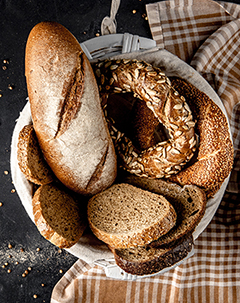
Sr. Jacinta Ugonma Mahakwe MMM
The Medical Missionaries of Mary live and work in Salvador – Bahia, Brazil. Since 2000, we have been working in a lower income, peripheral area of the city. It has a predominantly Afro-Brazilian descendant population with more than 90% black/persons of colour. The neighbourhood is marked by violence and a high incidence of substance abuse. Sr. Jacinta tells the story of a meeting with a small boy.
It is not a new thing to hear our doorbell ring and come out to find some kids walking back from the beach looking at you and smiling away. With the outbreak of Covid-19 pandemic, individuals often come to our doorstep requesting foodstuffs to feed their families. Recently, our doorbell rang non-stop. On checking out, there was a boy of about 10 years with a brilliant smile. The conversation with him was like this; “Good afternoon, auntie, please buy some sweets.” I asked him, “Why did you ring the bell without stopping?” His response was “Auntie, did I scare you? I am sorry.” He continued, “please buy some sweets. My mum made them. If I sell any, she can buy bread for breakfast.” ‘Bread for breakfast got me’. I asked him where he lived and a bit about his family. I bought some sweets and asked him to eat them. He was excited and went to the next house.
The story of this little boy and his family is one out of many families for whom the coronavirus pandemic has had a devastating effect, especially in our neighbourhood in the Nordeste area of Amaralina, Salvador. The COVID-19 pandemic exposed Brazil to an unprecedented health, social and economic challenge. Rising vaccination rates also contribute to the expected improvements in growth rate. However, the path to a full recovery remains steep given Brazil’s pre-existing structural and fiscal vulnerabilities and the impact of inflationary pressures on the economy. Most families face a difficult situation in which to choose between two equally deserving alternatives – working out which bills they can afford to pay. Most families go hungry, and some who could not pay their rents, go homeless.
In Northeast Amaralina, the community is still struggling with the adverse economic consequences and collateral damage caused by the coronavirus pandemic. The Medical Missionaries of Mary respond to the global pandemic crisis here in different ways. We offer counselling sessions, listening therapy, massage therapy, online youth support programme, supply of foodstuff/nutritional supplements, payment for medical and psychological consultations, diapers for elderly, purchase of prescribed medications and dressing material.
In collaboration with the leaders in the Small Christian Communities in the Northeast Amaralina, we are able to access and find some families who lack basic necessities. Each month, we provide food baskets to at least 15 new families. Bereavement, isolation, loss of income and fear are triggering mental health conditions or exacerbating existing ones. Those who are in need of psychological assistance are referred to a psychologist and we pay the bills. We observed that most of the families we work with cannot afford the drugs prescribed by their physicians and other medical supplies such as adult diapers. With their prescriptions, we procure their drugs.
With income stagnant and prices always on the rise, the equation is not adding up for millions of Brazilians. We are grateful to all our donors. Your contribution does count and make a lot of difference in the lives of the people we serve. It is because of you that we enjoy doing what we do.
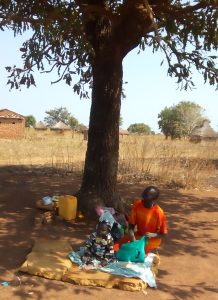 By Sr. Odette Nahayo MMM
By Sr. Odette Nahayo MMM
One day I was facilitating a programme for the needy elderly people in our community in Wau, South Sudan, and a young woman, whose name I came to know later as Fatima, came in and sat in the corner. She had a child on her lap. My first reaction was to ask her to leave because she was obviously not one of the present group. However, I felt I should first listen to her story before making any decision. I asked her to wait a little, promising that I would attend to her when I finish the session with the group, which normally takes only 30 minutes.
After I finished, I called her and asked why she had come to the Health Centre. Shockingly, the three-year-old child she was carrying was blind and epileptic. Her story touched me, and I promised to visit her.
On my visit to her place, I was stunned to find out that she slept under a tree with her two children. But during the rainy season, neighbours took turns accommodating her for a night or two. Her sad story was that her husband, a soldier, was shot dead. She carried his body back to the village for the burial even though she was pregnant. Returning to the village, she found her house was broken into. All her property, including all the materials of the house itself such as the bricks, the door, the roof and even the grass were stolen. She was left with nothing. She gave birth to a blind son, and as he was growing, she discovered that he was also epileptic. He was unable to stand or remain seated without being supported. Her other son who was in Primary 4 had dropped out immediately after his father’s death due to lack of school fees. The family was left with no hope, weeping day and night.
When I came back home, I shared the story with the Sisters how could we help? One of the Sisters shared the story with a friend who was quite financially secure. He also was touched by the story and requested her to estimate a budget for building a house, check if the elder son wished to resume school and see what the cost of the whole year would be. This was not enough, the benefactor also asked to check if the woman was able to do any business of her choice and what could be the cost. Going in haste, like Mary to Elizabeth, we jumped into action, and gathered all the necessary information. Within the same week, a sum of Three Hundred and Sixty U.S Dollars ($360) was sent. We were grateful to the benefactor. We went quickly to find someone who would do the work, and luckily enough we got people of good will.
Many people were willing to assist and contribute towards this effort. Within a period of two weeks, the family of three started sleeping in their own house. The next step will be her business. She already shared what she would like to do – baking bread, making mandazi, tea and selling other items such as salt, sugar and oil that can easily get customers. She is excited about the future ahead of her. Her son is already telling his friends that very soon he will go back to school. MMM Health Centre has also managed to stabilise the epileptic child and, since he was put on treatment, he has not been in crisis anymore. What more can one say? God always works through his people, for his people.
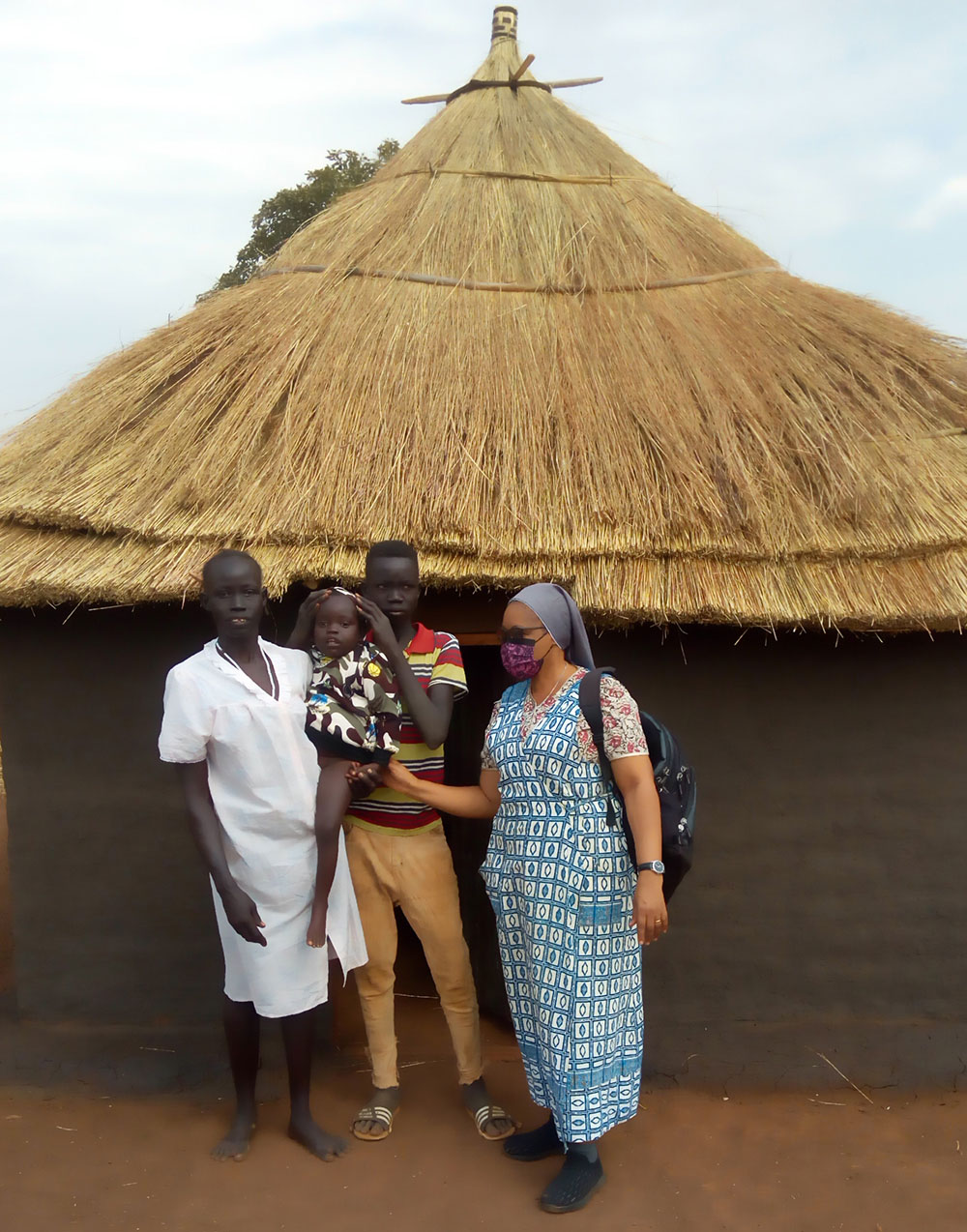 This is the letter I received from Fatima after she moved into her new house: “I know myself as a hardworking and happy woman. However, after the death of my husband, I lost everything including my joy and remained lonely, I became a beggar, and the taunt of laughter to my neighbours. Even those who were my friends turned into scorners. I was losing my faith, I questioned God several times, but I have learnt that God can delay intervening due to our lack of patience, but He does not stay silent forever. God opened a door, and His servants came in towards me, they fed me, treated my child, built me a house, they promised to start a business and my son to go back to school. Those who were laughing at us are now asking me how I went about it and who are those people who raised me up from the pit. My answer is that God remembered his poor servant and sent his people to me. How can foreigners help people they do not know? Even if I and my children do not eat, no one will notice because we are in our house. Now it is raining, we remember how many times some neighbours refused us a shelter when we needed it. We remember how much we suffered under the tree, then…we glorify the Lord, we pray for the Sisters, their Staff and our Secret friend, and we finally enjoy the nice sound of rain on our roof, we sleep peacefully. Our house is not made of GRASS, it is made of GRACE. I promise to also help those in need. I feel useful to my neighbours, and my identity has been restored. Thanks a lot for your love, Sister, and tell that unknown benefactor that God knows him, he will always intervene in his entire needs”.
This is the letter I received from Fatima after she moved into her new house: “I know myself as a hardworking and happy woman. However, after the death of my husband, I lost everything including my joy and remained lonely, I became a beggar, and the taunt of laughter to my neighbours. Even those who were my friends turned into scorners. I was losing my faith, I questioned God several times, but I have learnt that God can delay intervening due to our lack of patience, but He does not stay silent forever. God opened a door, and His servants came in towards me, they fed me, treated my child, built me a house, they promised to start a business and my son to go back to school. Those who were laughing at us are now asking me how I went about it and who are those people who raised me up from the pit. My answer is that God remembered his poor servant and sent his people to me. How can foreigners help people they do not know? Even if I and my children do not eat, no one will notice because we are in our house. Now it is raining, we remember how many times some neighbours refused us a shelter when we needed it. We remember how much we suffered under the tree, then…we glorify the Lord, we pray for the Sisters, their Staff and our Secret friend, and we finally enjoy the nice sound of rain on our roof, we sleep peacefully. Our house is not made of GRASS, it is made of GRACE. I promise to also help those in need. I feel useful to my neighbours, and my identity has been restored. Thanks a lot for your love, Sister, and tell that unknown benefactor that God knows him, he will always intervene in his entire needs”.
by Sr. Cecilia Kanulor
Torugbene mission in southern Nigeria has helped us to discover new and creative ways to live and survive in the climate of this mission. Growing plants and vegetables in sacks is one of them. When we MMMs arrived, we had great difficulty in finding a particular kind of green leaves we were used to. In fact we discovered the local people ate very few fresh vegetables. The long search in Torugbene to find fresh vegetables spurred us into action to start growing through sack gardening.
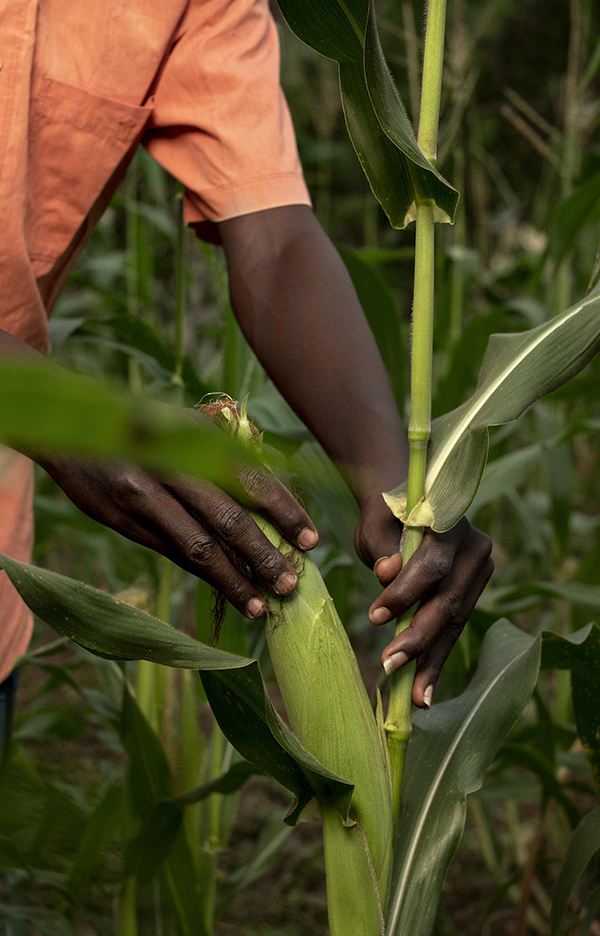 Through this innovative way of living, we have learnt how to live in plenty and in situations where there is nothing, as Philippians Chapter 4: 12-13 acknowledges. However, purifying the water for domestic use is also included in this experience.
Through this innovative way of living, we have learnt how to live in plenty and in situations where there is nothing, as Philippians Chapter 4: 12-13 acknowledges. However, purifying the water for domestic use is also included in this experience.
Certainly, sack gardening is ideal for balconies or small gardens where space is scarce. This is not the case in Torugbene, but it is ideal for us for another reason. The reality of developing sack gardening in this environment started when the pioneer sisters arrived on the 1st of October 2015, which was the opening day of the mission. On arrival, the Sisters observed that the place was covered by water being a riverine area.
While settling in this strange environment, the Sisters discovered that there were no vegetables in the area and almost all the people from this region called the Ijaws are not keen on fresh vegetable leaves either.
To stay healthy and carry out the mission work in this area, the Sisters started planting green vegetables, tomatoes, okro, pepper, and water leaves in nylon bags and, sometimes, plastic containers. The reason for this method of planting is because the area is covered by water from July until the middle of December annually. Torugbene is situated in the delta area of the River Niger. So, the sisters engage in growing sack gardening in Torugbene yearly, from July until December when the water-logged areas dry up.
However, through this method, we are assured of having vegetables throughout the year. We also share with patients, especially those that are anaemic. We also have enough to share with our Sisters in the diaspora as well as our friends. Although we do not have the opportunity of getting most of the things that we need upland, especially foodstuff, our surrounding and growing sack gardening annually is sustaining us greatly. This process of planting has also encouraged our neighbours to start planting in sacks too, especially when the place is flooded. Moreover, we are also planting other seeds like; avocado, mango, scent leaves to be transplanted to the garden of the new building when it is completed. Additionally, the experience of micro-gardening has improved our community cuisine, therefore, making our cooking more interesting, tasty, and enjoyable.
